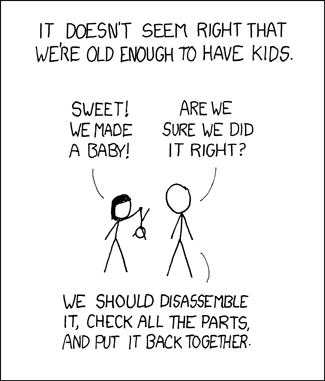I could spend time ranting about the commercialization of the feast. I think I'd get carried away and not say anything new. Instead, I'll offer a few thoughts inspired by a biography of JPII that I'm reading and my priest's sermon on the Feast of Holy Innocents.
Christmas, the feast of Christ's nativity, lasts for an octave. That's eight days. In those eight days, we celebrate the feast of St. Stephen, the Church's first martyr; the feast of the Holy Innocents, the children whom Herod murdered to try to kill Jesus; and the feast of Thomas Becket, a martyr of the Church in England. Nearly half of the days (maybe more that we didn't celebrate in my parish) of high celebration of a birth commemorate deaths. The Nativity and the Solemnity of Mary bookend these martyrs nicely.
Father explained that these feasts during the Octave of Christmas call to mind Christ's purpose for coming. The birth is inextricably linked to the passion, death, and resurrection.
While this is of course true, as logic it skips what I see as an important step. The main thrust of Christmas comes from the feast as a reminder of the Incarnation.
To focus on the Incarnation takes Christmas beyond crèches and images of Mary and the Christ child and all that. Christmas is like ogres and onions -- there are layers. Layer One : Santa and Christmas trees. Layer Two : the "holiday spirit" of loving and giving and family time and all those other virtues. Layer Three : the feast of the birth of Jesus. Layer Four : the Mystery of the Incarnation. [More layers which I have not yet discovered might exist. I am far from a theological expert.]
What does the Incarnation mean? I think I need a few years of Theology before I could begin to tackle that question as it should be tackled. But some of the more obvious bits that often elude my daily life come to mind. The Incarnation means God becoming human. A tradition (which I'm not sure I buy) says Mary had no labor pains giving birth to Jesus. But what was the baby Jesus like? Did he cry a lot? Was he ever sick? Even a sinless child might have to wail to let his Immaculate Mother know he is hungry or uncomfortable or tired. And he took on a human body like ours. That means susceptible to heat and cold, hunger and thirst; does it also mean disease and infection. Did he ever get a cold? Did he have acne as a teenager? Jesus did not assume a glorified body until after his Resurrection.
Of course, the answer to none these questions really matters. The implication of the answers and the very idea that the questions can be asked have a far greater reach. They remind us of the great humility that God demonstrated in his birth. They remind us that the child in the manger matters both because of who he would grow up to be and because of Who he always has been. And that is my Christmas Mystery and joy this year.
